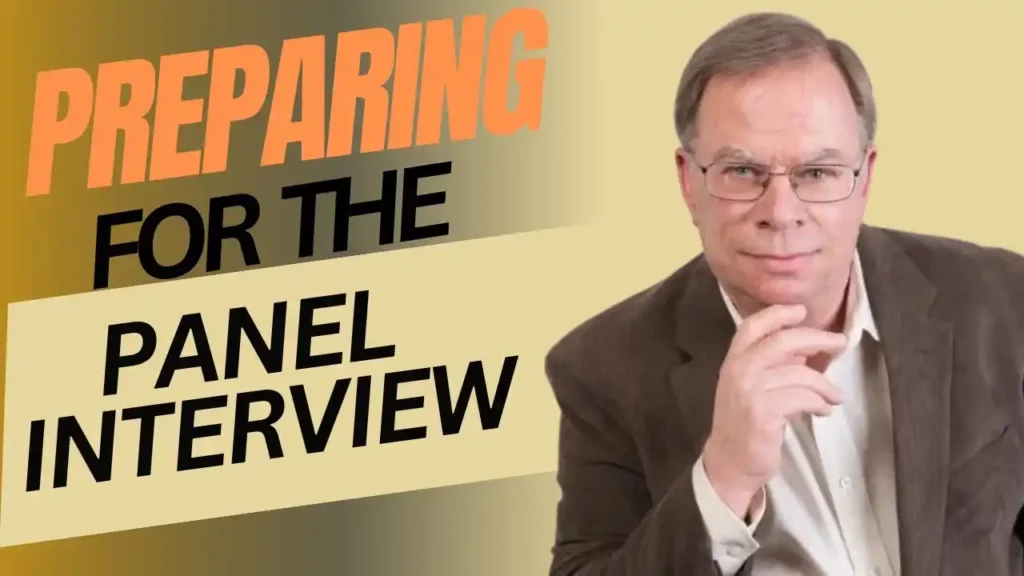Mastering Panel Interviews: A Comprehensive Guide
Panel interviews are a dynamic and often challenging part of the hiring process. Unlike traditional one-on-one interviews, panel interviews involve multiple interviewers assessing a candidate simultaneously. This format allows organizations to evaluate a range of skills, including technical expertise, communication, and the ability to handle high-pressure situations. To succeed in a panel interview, candidates must be well-prepared, confident, and adaptable.
This guide provides an in-depth look at panel interviews, their purpose, structure, common questions, preparation strategies, and actionable tips to help you excel.
What is a Panel Interview?
A panel interview is a type of job interview where a group of interviewers evaluates a candidate. The panel typically consists of representatives from different departments or teams, such as:
- Hiring Managers: To assess the candidate’s alignment with job requirements.
- HR Representatives: To evaluate cultural fit and interpersonal skills.
- Technical Experts: To test domain-specific knowledge.
- Potential Team Members: To gauge team compatibility.
Panel interviews are often used for positions requiring cross-functional collaboration, leadership, or highly specialized skills.
Crack Any Technical Interview: The Ultimate Preparation Guide
Why Do Employers Conduct Panel Interviews?
Panel interviews offer several advantages to employers:
- Diverse Perspectives: Multiple interviewers provide a well-rounded evaluation of the candidate.
- Efficiency: Conducting a single interview with multiple stakeholders saves time.
- Team Input: Involving potential colleagues ensures the candidate fits well within the team.
- Stress Testing: Panel interviews simulate high-pressure environments to assess how candidates perform under scrutiny.

Structure of a Panel Interview
Panel interviews typically follow a structured format:
1. Introductions
- Each panelist introduces themselves and their role within the organization.
- The candidate is given an opportunity to provide a brief self-introduction.
2. Questioning Round
- Panelists take turns asking questions related to their area of expertise.
- Questions may cover technical skills, behavioral traits, and problem-solving abilities.
3. Scenario-Based Questions
- Candidates are often asked to solve hypothetical problems or discuss past experiences relevant to the role.
4. Follow-Up Questions
- Panelists may seek clarification or delve deeper into specific answers.
5. Candidate Questions
- Towards the end, candidates are invited to ask questions about the role, team, or organization.
6. Closing Remarks
- The panel concludes the interview by outlining the next steps in the hiring process.
Common Panel Interview Questions
Panel interviews often include a mix of technical, behavioral, and situational questions. Here are some examples:
Behavioral Questions
- Can you share an example of a time you successfully managed conflicting priorities?
- Describe a situation where you had to collaborate with a difficult team member. How did you handle it?
Technical Questions
- Explain how you would approach solving [specific problem related to the role].
- What tools or methodologies have you used to deliver successful projects in the past?
Situational Questions
- How would you handle receiving contradictory feedback from two senior team members?
- If you were given a tight deadline to complete a complex task, what steps would you take?
Role-Specific Questions
- What strategies would you implement to increase efficiency in [specific domain]?
- How do you stay updated on industry trends?

How to Prepare for a Panel Interview
Preparation is key to acing a panel interview. Follow these steps to ensure you’re ready:
1. Research the Panelists
- Obtain the names and roles of the panel members (if shared beforehand).
- Research their professional backgrounds on LinkedIn or the company website.
2. Review the Job Description
- Understand the key responsibilities and skills required for the role.
- Be prepared to demonstrate how your experience aligns with these requirements.
3. Practice Common Questions
- Rehearse answers to behavioral, technical, and situational questions.
- Use the STAR method (Situation, Task, Action, Result) to structure your responses.
4. Prepare for Group Dynamics
- Practice maintaining eye contact with different panelists.
- Address the entire panel, not just the person who asked the question.
5. Bring Supporting Materials
- Carry extra copies of your resume, a portfolio (if applicable), and a notebook for taking notes.
6. Prepare Questions for the Panel
- Ask thoughtful questions that demonstrate your interest in the role and company. Examples include:
- What challenges is the team currently facing?
- How do departments collaborate to achieve company goals?
Mastering HR Interviews: Your Complete Guide to Success
Dos and Don’ts in a Panel Interview
Dos:
- Maintain Composure: Stay calm and confident, even when faced with challenging questions.
- Engage with All Panelists: Make eye contact and acknowledge everyone on the panel.
- Be Concise: Provide clear and relevant answers to each question.
- Showcase Teamwork Skills: Highlight examples of collaboration and adaptability.
- Express Gratitude: Thank the panelists for their time and insights.
Don’ts:
- Don’t Ignore Panelists: Avoid focusing exclusively on one person.
- Don’t Rush Your Answers: Take a moment to think before responding.
- Don’t Interrupt: Wait for the interviewer to finish before answering.
- Don’t Criticize Others: Stay professional when discussing past experiences.
Managing Challenges in Panel Interviews
1. Handling Rapid-Fire Questions
- Stay calm and take a moment to process each question.
- Politely request clarification if needed.
2. Navigating Conflicting Questions
- Acknowledge both perspectives and provide a balanced response.
- Highlight your ability to adapt and find common ground.
3. Managing Time
- Keep answers concise and focused to ensure all panelists have a chance to ask questions.

Virtual Panel Interviews
With remote work becoming more common, virtual panel interviews are increasingly prevalent. Here’s how to prepare:
1. Test Your Technology
- Ensure your internet connection, camera, and microphone are working properly.
- Familiarize yourself with the video conferencing platform being used.
2. Create a Professional Setup
- Choose a quiet, well-lit space with a clean background.
- Dress professionally, just as you would for an in-person interview.
3. Maintain Engagement
- Look directly at the camera to simulate eye contact.
- Use gestures and expressions to convey enthusiasm.
4. Handle Technical Glitches Gracefully
- Stay calm and apologize for any disruptions.
- Have a backup plan, such as a phone number to call in case of issues.
Post-Interview Best Practices
1. Send Thank-You Notes
- Email each panelist individually, thanking them for their time and insights.
- Personalize each note by referencing specific topics discussed during the interview.
2. Reflect on Your Performance
- Identify areas where you excelled and areas for improvement.
- Use this feedback to prepare for future interviews.
3. Follow Up
- If you haven’t heard back within the stated timeline, send a polite follow-up email to inquire about the status of your application.
Conclusion
Panel interviews may seem intimidating, but with thorough preparation and a confident approach, you can turn them into an opportunity to showcase your skills and personality. By understanding the format, anticipating questions, and engaging with all panelists, you can leave a lasting impression and increase your chances of success. Remember, every interview is a steppingstone toward your career goals, so approach each one as a valuable learning experience. Good luck!




